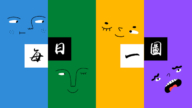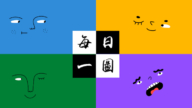【新唐人2011年6月29日訊】伊万非常支持中國茉莉花革命,並於中共建黨90週年之際接受茉莉花革命者們的專訪,對中國人民和中國政府發表講話。在詳細講述自己在塞爾維亞的成功經歷後, 伊万正告中國政府:想要阻止人民追求自由是不可能行得通的。因為你只能不斷地增加維穩的能量,但最終人民也還是會勝利。
出生於1973年的伊万•馬洛維奇和出生於1941年的米洛舍維奇同是貝爾格萊德大學的校友。伊万在25歲時創建Otpor學生組織,開展非暴力運動,並於1999年成功推翻米洛舍維奇的集權政府。
以下是視頻和演講全文:
嗨,我是伊万•馬洛維奇,我來自塞爾維亞的貝爾格萊德。我和朋友們一起組織了Otpor!學生運動,我是的創立者和領導者之一。 Otpor!在2000年的時候推翻了專制的米洛什維克政權。
我的故事開始於我還是個很小的孩子的時候。當時我還在讀高中,而米洛什維克還在掌權。在1991年的時候在塞爾維亞發生了第一次對米洛什維克的抗議運動。很巧的是,這正好是在天安門運動兩年之後。但是這次抗議運動和天安門運動以同樣的方式結束。米洛什維克政權派出軍隊和坦克鎮壓了抗議。
在我逐漸長大的過程中國家的狀況日益變得糟糕。我們的國家迎來了內戰,極度通貨膨脹,經濟蕭條,貧困,等等。所以推翻米洛什維克政權的必要越來越突顯。但是問題是我們一嚐試反抗,政權就用武力和坦克來鎮壓。因此我們慢慢開始用當局不容易察覺的方法進行聯絡。我們嘗試著,並最終建立起一個地下的反抗組織。我們叫它為“otpor”,就是塞爾維亞語中“反抗”的意思。 Otpor!通過一個一個的小規模勝利逐漸壯大起來。最先大學開始試著制約校方的權力,然後學生們在小一些的市鎮開始上街遊行,最終這種小遊行轉變成大遊行,並在2000年時推翻了米洛什維克政權。
如果要讓我談談塞爾維亞和中國的區別,我得說這個區別是相當大的。因此我也不確定我所說的是否會對你們產生幫助。不過我還是要傳達我的信息:我們在對抗米洛什維克政權的時候學到了一些東西。
第一點,在斗爭中依賴年輕人的力量十分重要。我們能夠勝利的原因就是我們是一個青年運動。青年運動不單單指它的成員很年輕,它同時也擁有年輕的領導力量。它相比較起老方式的政治組織有很多好處。比如說年輕人沒有結婚,他們不用關心事業,不用撫養孩子,因此恐嚇或敲詐對他們的作用有限,而年長一代的人就會容易屈從這些困難。因此年輕人要比年長一代的人勇敢很多很多。他們也因此能做很多年長一代的人不能做的事情。
另外一個好處就是年輕人和年輕人交流起來容易很多。比如說讓我們去和一個高級軍官或政府的高級官員交流起來會很不方便,但是然我們去和他們的兒女交流就會容易很多。我們就這樣深入政權內部並逐漸把它拉攏過來。所以說我們實際上是從他們的孩子那裡下手的。這就是我們在斗爭中學會的第一件事。
第二件事是我們在斗爭中一直保持這非暴力的抗爭手法。我們沒有恐嚇我們的敵人。我們沒有恐嚇那些逮捕我們的欺壓者。我們在被警察抓捕的時候保持著熱情和禮貌。有段時間米洛什維克說我們是恐怖組織,下令迅速逮捕我們的所有成員。警察來逮捕我們。但是因為我們沒有恐嚇過警察,因此雖然我們也被抓進了監獄,但我們卻沒有像一些其它組織一樣受到酷刑,因為我們和警察有著良好的關係。這一點十分重要。這一點給了我們另一課,那就是你的人民安全非常重要。不要讓他們承 擔不必要的危險。不要為了不重要的事情浪費他們的能量甚至生命。
不要讓人民為不能等同他們所付出的代價的東西所困,(因為)他們所承擔的風險要大大高於行動所帶來的利益。因此慢慢地成長非常重要。不要一下子成長地太快,使得你們不能應對當權者意識到你們存在的威脅時所使用的壓迫。這就是另外一點。
我們在這些年中學到的第三件事是要建立一個團結統一的戰線。你的團隊裡面會有許多不同的人,他們會有不同的意識背景,不同的世界觀,不同的社會地位。必須把他們統一起來才能保證行動的勝利。在塞爾維亞有一句諺語說道,兩個塞爾維亞人就有三個政黨。人們會分成不同的派系。所以慢慢地建立起不同派系之間的人的關係和把他們統一到同一條戰線對成功起到非常重要的作用。
當米洛什維克面對起義的人群的時候,他發現是如此大的一個來自全國各地的人群,於是就叫來警察去驅散人群。但是人們不單單聚集在一個廣場上面。他們佈滿了首都的每一條大街小巷。因此警察那人民沒辦法。後來米洛什維克叫 來了軍隊。但是這次的軍隊和以往不一樣。他們當中的許多軍人是從人民中召集上來的,是和街道上面的人站在一邊的。再說聚集的人多得連軍隊也沒有辦法驅散了。因此最終米洛什維克意識到沒人幫得了他,就只好下台了。他沒有放一聲槍就下了台。這一幕在我們塞爾維亞歷史中是非常重要的一幕,因為在塞爾維亞兩百年的現代史中沒有那個總統或國王不是被殺死或逃離國家的。我們經歷了一系列的血腥戰爭和過度。因此這第一次用非暴力、用人民力量使一個總統下台,沒有什麼傷亡,甚至使總統自己也保全了性命,這是非常真實的成功。
問:你曾經被一個警察暴打,而且你還記得住他的名字。這是一個什麼樣的故事?
有一回我被抓了起來。當然我被抓了許多次,但是這一次他們想要取我的手印並給我拍照。那個給我拍照的警察扇了我很多下。後來在米洛什維奇下台之後我又碰見了他。因為當時我的公寓被盜了,我需要一個警察協助我辦案。這時我碰見了那個扇了我耳光的警察。當時的場景挺有趣的。但是同時這個警察表達了對我的歉意,我卻沒有想要報復的意願。因為我們最終贏得了勝利,而且我們不光是為自己贏得了勝利,我們同時也幫助了那些警察們,因為警察們現在不用違心地打自己的人民了。所以對警察們來說今天的境況也比在當年米洛什維奇的統治下面要好。
問:你有沒有一條給中國當權者的信息?比如說,當年你們有沒有一條給米洛什維奇的信息?
有。我覺得這條給米洛什維奇的信息也同樣可以說給中國當權者聽。那就是,想要阻止人民追求自由是不可能行得通的。因為你只能不斷地增加維穩的能量,但最終人民也還是會勝利。這就是當年塞爾維亞發生的情況。米洛什維奇最終被迫下台。他沒有辦法保住自己的政權。這就是我要傳遞給中國政府的信息!
問:謝謝你!
好的。
Ok. Hi, my name isIvan Marovic. I’m from Serbia, and together with my friends I was one of thefounders and leaders of Otpor!, the resistance movement that brought downSlobodan Milosevic, our dictator, back in 2000.
My story beginswhen I was a very young kid. I was still in high school, and Milosevic was inpower. There was a first demonstration against Milosevic. This was in 1991. Itwas interesting. It was two years up to Tiananmen Square, but it ended the sameway Tiananmen ended. The Milosevic regime sent armies and tanks and destroyedthe demonstration—the pro-democracy demonstrations in the metro powers.
As I was growingup the situation was becoming worse and worse—you know we had the civil war,and hyperinflation, and economy sanction, and poverty, and all that. So therewas a need to bring down the regime because it was making the situation worseand worse every day. But the problem was when we tried to do it it ended upwith military intervention and tanks in the streets. So slowly we startedconnecting in the way that was not so obvious to the authorities and gettingtogether and trying to build, which we finally did, an underground resistancemovement, which we called “otpor”, which is the Serbian word for resistance.Otpor was slowly building its strength through small victories. First theuniversities tried to limit the power of the deans and school principals thenslowly came out to the streets in some smaller towns and cities, and finallyturned into a mass movement that managed to bring down Slobodan Milosevic in2000.
So if I recall thedifferences between Serbia and China, [they are] enormous. So I don’t know ifany of the things that I would say would be of help…may be not. Butnevertheless, here is my message: there are certain things that we learned overthe time that we were fighting against Milosevic.
The first thing was, it was important to rely on youngpeople, and the reason whywe succeeded was because we organized as a youth movement. And youth movement doesn’tonly mean members were young, but the leadership was also young. It got somebenefits over old style political organizing because young people…they are notmarried, they don’t care about careers, and they don’t care about children, sothey cannot be easily blackmailed or threatened, or bullied as older people, sothey are much much braver. For instance, they can do things that older peoplecan never do, because of that.
Another thing isthat young people can meet other young people much more easily than olderpeople. So for instance it is very difficult for us to meet in person a highranking officer of the army or to meet in person some high ranking bureaucratsform the government, but to meet his son or daughter in person was easy. Sothis is how we reached to the elements of the regime and slowly worked onbringing them closer to our side. We worked actually on their children. So thatwas the way we reached them. That was the first thing that we actuallydiscovered through our struggle.
The second thing is we always tried and succeeded inremaining non-violent in our actions. We didn’t threaten the other side. We didn’tthreaten the bullies when they were arresting us. We were cordial and we werepolite to the police officers when we were arrested. At one point Milosevicdeclared us as a terrorist organization so ordered swift arrest of all theOtpor! activists and members of the organization. And we were arrested by thepolice. But because we didn’t threaten the police in any way, we actually…wewere of course arrested and put in jail but we weren’t suffering cases oftorture like other political groups because we managed to establishrelationship with the police. And that was important.
And that leads meto another lesson that we learned from struggle that is it is important to keepyour people, your members safe, not to put them at risk if it is not necessary,not to waste their energy and to waste their lives on things that are not veryimportant or things that don’t create certain effect. I have to stop herebecause I’m distracted. So let me go back. So that leads me to another lessonthat is you have to keep your people safe, you have to keep your members safe,from harm, as much as possible, and not to risk their lives.. And they are heldfor something that is not going to match the investment. The risk that they aregoing to take is going to be just too high for the benefit of the action. So itis important to grow slowly, not to grow too fast so that you can not handlethe crackdown that is going to come when the authority realize that you pose athreat. To grow slowly means to create the capacity to withstand that crackdownwhen it happens. So that’s another thing.
The third thing that we learned over the course of theyears is it is important to create the unified front. There are many different people,different ideological backgrounds, different world views, different socialstatus. They all needed to be united in one front in order for the movement tobe victorious. We have a saying in Serbia: you have two Serbs, you have threepolitical parties. The people are very factionalized than…how should I say…theyare very big political—this is another difference about people.
So working slowlyin building these relationships within people and bringing them together in theunited front, that actually was what I think crucial for the success becausewhen Milosevic confronted the whole population, it was such a huge crowd ofpeople from all parts the country so that he couldn’t do anything, so he calledin the police to disperse the demonstrations, but there weren’t justdemonstrations in one square. They were all over the capital, in every street,everywhere, so the police couldn’t disperse the demonstrations. And then hecalled in the army, but the army was, this time, unlike the previousdemonstrations. The army understood that the people who are in the army arerecruits, so they belong to the same people that are in the street. There areso many people that they cannot actually disperse them either because they areall over the city. So finally Milosevic realized that nobody was going to help,so he decided to step down. So he stepped down without a single shot fire. Andthat was an important moment in our history because if you look at the twohundred years of modern Serbian history, every president or king of Serbia waseither assassinated or had to run away to save his life. So we had a series ofbloody wars and transitions, so to have for the first time somebody steppeddown with the use of non-violent method, and public pressure, and to step downwithout casualties and without even him being killed, that was a…
There was once an encounter of a policeman who beatyou up and you still remember his name. So what’s the story?
Yes. Well, I wasat one point arrested. I mean many times I was arrested, but I mean at onepoint I was arrested and they wanted to take my finger prints and my photo. Sothe guy who was taking the photo he slapped my several times. Then later, I raninto him. You know, after Milosevic was overthrown. And I found him, andbecause my apartment was broken into and there was burglary, I needed a policeto help me to investigate that. So I encountered the same person who beat meup. That was a funny encounter. But on the other hand, you know, he felt sorryfor what he did, and I felt no desire for revenge, because in the end we won,and we didn’t win just for ourselves, but we also win for that policeman,because he now works in the police force that he is not forced to beat hiscitizens. So even it’s better for him today than when Milosevic was in thepast.
Do you have a message to the Chinese authorities whoare still in power? Did you have a message for Milosevic when he was in power?
Yes we had amessage for Milosevic was in power, and I think the same message can work forthe Chinese authorities. That is, is it impossible to prevent people when theywish to be free. That is just not going to work because you can only spend moreand more effort, more and more energy in preventing them, but eventually theywill pervade. And this was what happened in Serbia. He had finally to stepdown. There was no way he could avoid that. So that would be my message.
Thank you very much.
Ok.
──轉自《博訊》






















